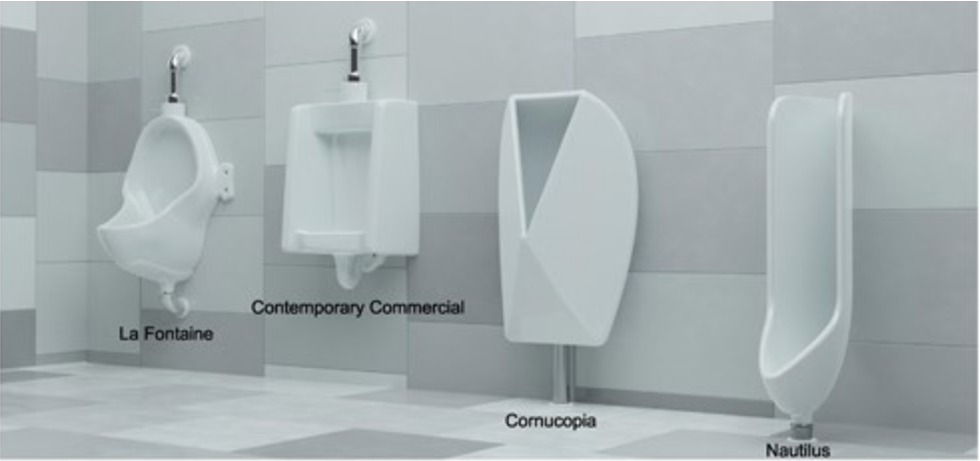Every Sunday morning during summer and much of fall, 20 Muslim women gather (weather permitting) at a beautifully secluded baseball park behind a school in Mississauga, Ontario, just outside of Toronto.
After the players set up the bases, stretch, practice their throws, and secure their hijabs or ball caps, the teams are selected. For two hours, these women swing hard, sprint, and catch fly balls. There are cheers, words of advice and encouragement, sincere supplications, and yes, some controversial calls. Like any sport, intensity and drama are part of the game.
The mandate is simple: “Sisterhood Softball is a community effort to develop the sport of softball/baseball while building sisterhood within the community.”
The idea of Sisterhood Softball came fairly easily to Hina Mirza and Maryam Dadabhoy, who organize and run the league. Dadabhoy’s husband, Zahid Merchant, is the commissioner of the more established men’s version, the Brotherhood Softball League (BSL), and Dadabhoy and Mirza frequently attended their games. But it wasn’t long before Mirza, who played softball all through junior high and high school, thought, “Why aren’t we playing? Why are we watching?”
Initially, they decided to join a local team in their city, but they realized that more Muslim women might want to join in. So they sent out a few emails and set up a Facebook page, and within a couple of weeks, they had more than 100 women sign-up for the league. Sisterhood Softball was born.
They started off with a pick-up league, where players reserved their spots online on a weekly basis. Just pay the $5 per player fee, make new friends, play hard, and have fun.
My love of and fascination with softball started with a simple text message, “Are you in?” I am an almost 40-year-old woman who has been playing soccer for more than three decades. The idea of joining a softball league seemed hilarious, mostly because I had no knowledge (read: skill) of throwing, batting, or fielding. But one of my best friends was joining this league, and between us, our families, and our jobs, there was seldom time to meet up, let alone play a sport together. This was a softball league for Muslim women, including girls, moms, aunties, or anyone who wanted a place to play the sport without any pressure.
In the beginning of the summer, that friend, Mahma Hoda, invited me and my kids to a Toronto Blue Jays’ game. The idea of going to a stadium filled with thousands of Torontonians and watching baseball seemed like fun, and the Rogers Centre had free Wi-Fi, so I figured it would be fine. Mahma gifted me a Josh Donaldson jersey, and I paired it up with matching eyeliner and a blue hijab—something that Muslim women sports fans often do to support their favorite teams.
During the game, Mahma patiently explained all the rules. I had about 800 questions and she answered all of them. Before I went to the game, a good friend of mine (who happens to be an amazing baseball writer) told me to prepare myself. I might fall in love with baseball, which could be both joyous and heartbreaking. Stacey May was so right.
In what can only be described as riveting, the Jays came back in the eighth inning to beat the Minnesota Twins. Two of my sons and I even got to witness the rare inside-the-park homerun. I was enthralled and elated. What a game.
Being in the company of a group of 30 Muslims of Pakistani descent, some shouting prayers of thanks or cheers in Urdu, was even more enjoyable. The crowd of 47,000 fans of so many different ethnic communities was surprising to me. Most of the sports I watch live (soccer and hockey) are predominantly white spaces.
Baseball could be for everyone.
Dadabhoy grew up in California, where she and her mother lived and breathed the Los Angeles Lakers. She had never thought of playing softball until she married a man—whom she describes as “the biggest Kobe-hater ever”—who happened to be a softball player.
After coordinating the sign-up process for Sisterhood Softball, she joined in the games once her midwives gave her the ok to play. Her baby, Inaayah, was seven weeks old at the time.
Women with little or no experience come out, looking to be challenged, but also to be supported by a team that includes experienced players. Mirza begins the sessions with a pep talk and a short prayer. This nurtures an amicable environment and underscores the camaraderie and community that can exist in softball.
The players range in age from 18 to mid 40s. Sisterhood Softball is intended to be mom-friendly. The venue was specifically chosen with a playground steps away, so that children could busy themselves in playtime as the mothers took to the diamond. There even is a mother-daughter combination among regulars—and the mother happens to be the heavy-hitter of the two. Once my own daughter turns 18, the minimum age for the league, I would love for her to join me.
At my first game, I had no idea on which hand to wear the glove that I borrowed from Mirza. She took me aside and explained the rules, basic plays, and techniques. I wasn’t the greatest, but I had so much fun. Though my shoulders were sore the next day, I had no major injuries.
Sisterhood Softball reaches out to any woman who identifies as Muslim and would enjoy a safe space and friendly environment in which to play. Among these efforts was an open house during the summer, complete with baseball-themed baked treats and a skills development session that excited potential players.
Mirza, who is pursuing her master’s in counseling psychology, says Sisterhood Softball helps integrate Muslim women into the Canadian community, without the culture of alcohol that is prevalent in traditional softball team gatherings. Observant Muslims do not drink alcohol, and its presence could be a deterrent to Muslim women who feel uncomfortable with the mixing of alcohol consumption and sport—common in many adult sports leagues.
“As a group of Muslim women, we get to tailor the softball environment based on our needs,” Mirza says. “We don’t want to impose ourselves in a standardized league.”
Most importantly, Sisterhood Softball accommodates traditional dress codes. If the players are more comfortable wearing a headscarf, long tunics, loose dresses, pants, t-shirts or tights, it is not problem. One of the strongest pitchers wears the niqab (a face veil). Inclusion is the uniform of the league.
[quote position="right" is_quote="true"]Most of the sports I watch live are predominantly white spaces. Baseball could be for everyone.[/quote]
The league also does not encourage males (with an exception for children) to come out and watch their games. Although the venue is public, it is very secluded, which gives some of the players more comfort. I have played soccer in public my whole life, but I respect the choices of other women who might not be comfortable with male spectators.
Mahma tells me she would have been “too intimidated” to join a regular league. She enjoys Sisterhood Softball and the level of competition it affords.
Indeed, Muslim women might be hesitant to join mainstream leagues, particularly if they might be the only visibly Muslim woman out there. In between innings at our most recent game, Maha Khilji, one of the youngest players in Sisterhood Softball, told me that she would have considered trying out for her high school team if there was more diversity. At her school softball is a “white culture sport.”
Khilji wears hijab. Her brothers who play in the BSL encouraged her because she’s athletic and knows the game. “I’m not afraid,” she says, “but going out alone is … ,” and her voice trails off. I reassure her that her skills are amazing. She’s a great pitcher and has the most exquisite batting stance I have ever seen. I tell her that any team would welcome her. She smiles. I understand.
Around the same time that I joined Sisterhood Softball, Fox aired a new show called Pitch. The show follows the baseball career of the fictional Ginny Baker, the first woman to play professional baseball. Ginny is a black woman, but the effect of the show is what’s important. In a poignant Cosmopolitan piece, Kendra James remarks on the crowds chosen to play fans of Ginny Baker: “There are white, black, brown, and Asian girls and women peppering the stands. No one is wearing a baby blue or pink jersey. The 45-minute pilot marks the first time I’ve ever seen your average, screaming, American sports fan portrayed on television as a woman in hijab.”
Representation matters, and the participation of Muslim women in sports matters. Dadabhoy’s daughter, Amaanah, plays in a softball league. She loves it. Dadabhoy hopes Amaanah continues with it as long as she’s happy and thriving. Watching her mother leave the baby at home with dad and then gear up to play is important for little girls, particularly in a sport Muslim women aren’t commonly known to play. Amaanah and her infant sister will grow up knowing that there is a place for them on the diamond—even if they have to carve it out themselves.
Sisterhood Softball has wrapped a successful first season. There are plans to expand into a proper league next year. Until then, the group of about 40 regulars chat on a WhatsApp group. We are making plans to hit a batting cage or embark on other sporty excursions, and we have social events during the offseason.
During the Blue Jays’ playoff run this year, my phone buzzed incessantly with notifications from the group during the games. It looks as if I found my very own baseball community. Even if there are not so many inside-the-park home runs, I plan to stick around. And I might buy a baseball glove to match my hijab.
















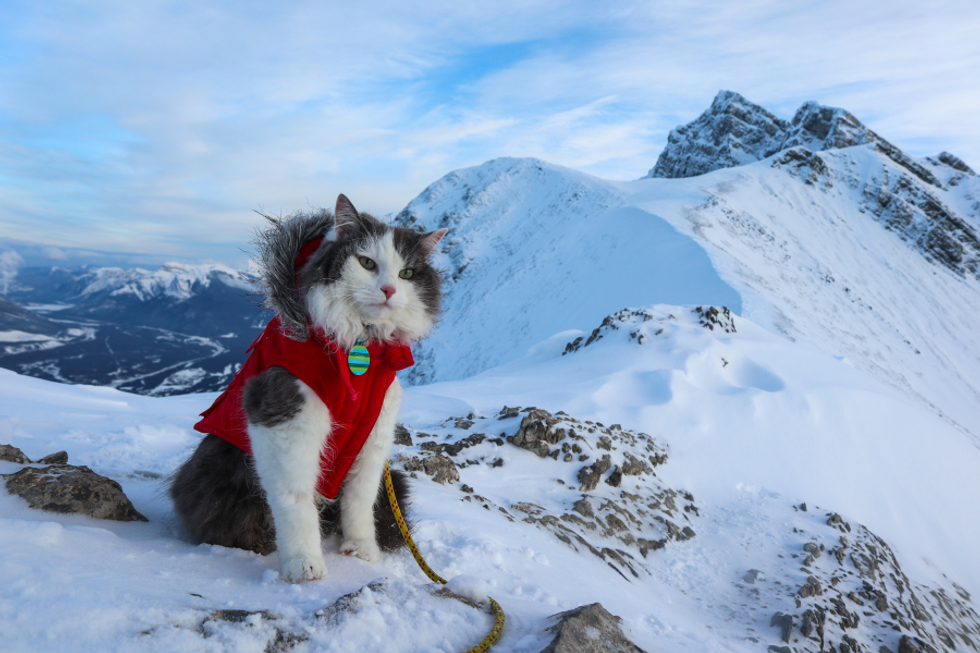 Let us all bow before Gary, the Internet's most adventurous feline. Photo credit: James Eastham
Let us all bow before Gary, the Internet's most adventurous feline. Photo credit: James Eastham Gary the Cat enjoys some paddling. Photo credit: James Eastham
Gary the Cat enjoys some paddling. Photo credit: James Eastham James and Gary chat with Ryan Reed and Tony Photo credit: Ryan Reed
James and Gary chat with Ryan Reed and Tony Photo credit: Ryan Reed

 Rock deterioration has damaged some of the inscriptions, but they remain visible. Renan Rodrigues Chandu and Pedro Arcanjo José Feitosa, and the Casa Grande boys
Rock deterioration has damaged some of the inscriptions, but they remain visible. Renan Rodrigues Chandu and Pedro Arcanjo José Feitosa, and the Casa Grande boys The Serrote do Letreiro site continues to provide rich insights into ancient life.
The Serrote do Letreiro site continues to provide rich insights into ancient life.

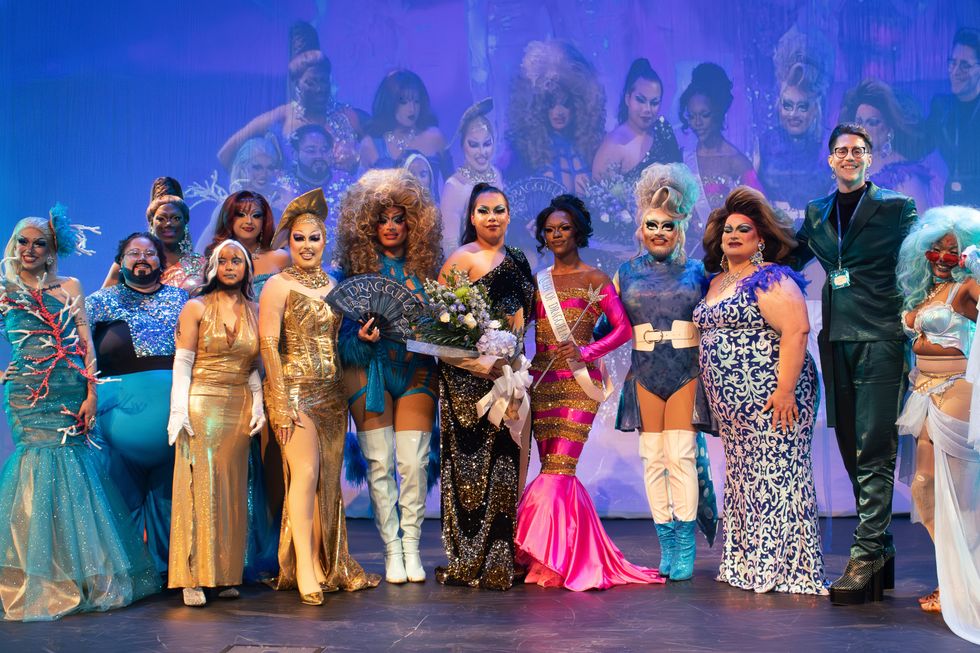 The contestants and hosts of Draggieland 2025Faith Cooper
The contestants and hosts of Draggieland 2025Faith Cooper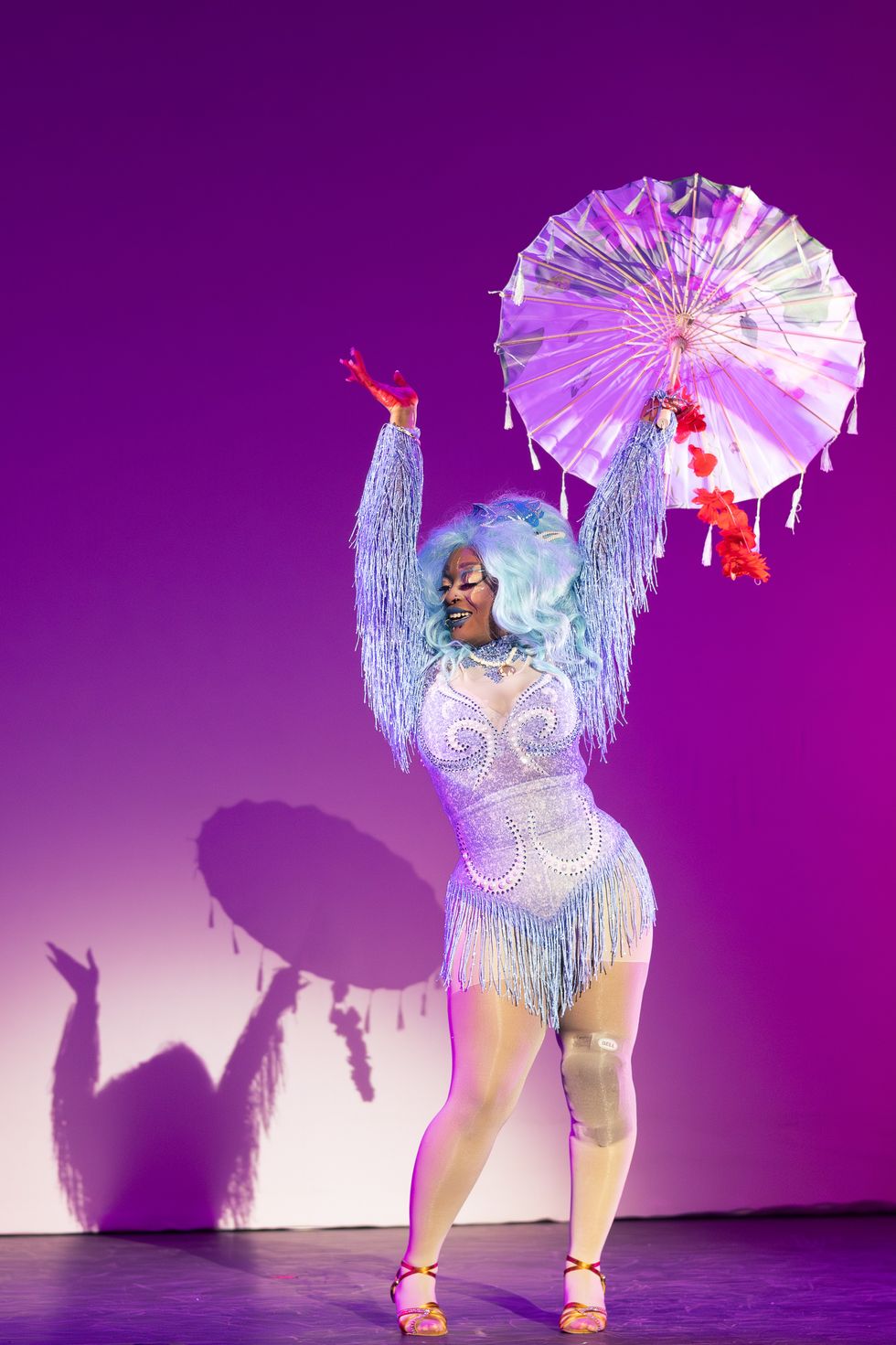 Dulce Gabbana performs at Draggieland 2025.Faith Cooper
Dulce Gabbana performs at Draggieland 2025.Faith Cooper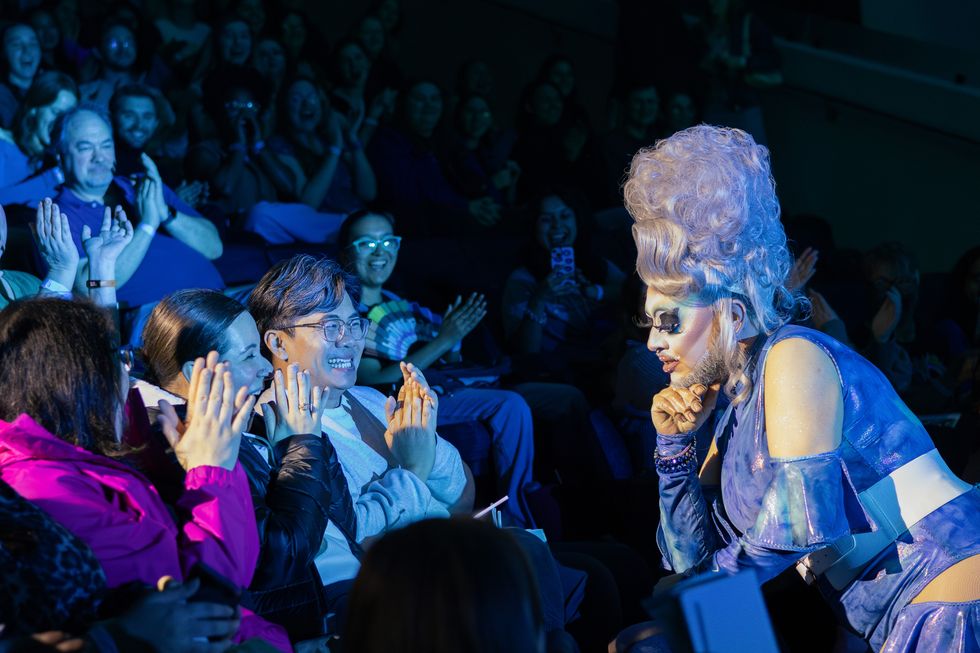 Melaka Mystika, guest host of Texas A&M's Draggieland, entertains the crowd
Faith Cooper
Melaka Mystika, guest host of Texas A&M's Draggieland, entertains the crowd
Faith Cooper


